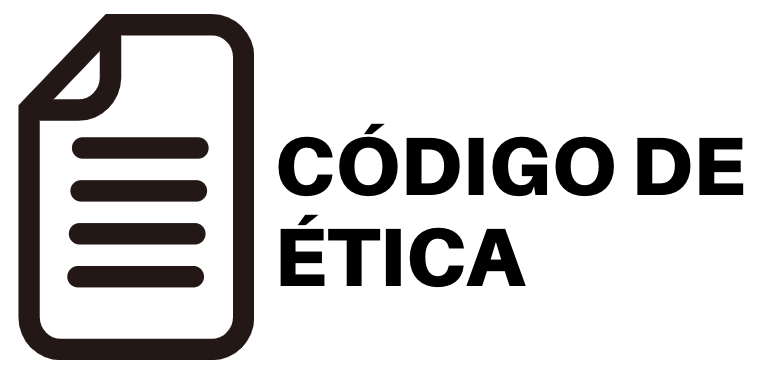Influence of self-regulated learning difficulties on the academic stress of university students
DOI:
https://doi.org/10.33936/psidial.v1i1.4568Keywords:
self-regulated learning, learning, academic stressAbstract
Educational systems have been focused on the analysis of the processes involved in the quality of study activity and the consequences of deficiencies in the practices implemented by students. Self-regulated learning as a motivational cognitive system of learning involves the development of cognitive competencies and motivational affective skills, which contribute to students developing coping strategies in the face of the ineffectiveness of study activity as a generator of academic stress. The aimof the study was to determine the influence of difficulties in self-regulation of learning on the manifestations of academic stress of university students. A mixed research approach was used, with a sequential exploratory design. Participated in the research 27 students of the career of Industrial Engineering, the faculty of Mechanical and Industrial engineering of the Universidad Central "Marta Abreu" de Las Villas. The qualitative variant was conducted through a group session, on the results obtained thescale was applied to measure the phases of self-regulation of learning and the SISCO inventory of academic stress responding to the quantitative variant. As a result,it is evident that the difficulties associated with self-regulated learning can be generators of academic stress as shown in group three of the first year of the career Industrial Engineering at the faculty of Mechanical and Industrial engineering of the Universidad Centra "Marta Abreu" de Las Villas. Promoting self-regulated learning in university students can be a determining element in reducing manifestations of academic stress.
Downloads
References
Barraza, A. (2019). El estrés académico en alumnos de odontología. Revista Mexicana de estomatología, 6(1).
Blackmore, C., Vitali, J., Ainscough, L., Langfield, T. & Colthorpe, K. (2021). A Review of Self-Regulated Learning and Self-Efficacy: The Key to Tertiary Transition in Science, Technology, Engineering and Mathematics (STEM). International Journal of Higher Education 10(3) https://doi.org/10.5430/ijhe.v10n3p169
Cerna, C.A. & Silva, M.G. (2020). Análisis del aprendizaje autorregulado en estudiantes universitarios. Revista Ciencia y Tecnología 16(1), 61-69.
Cueli, M., García, T., y González-Castro, P. (2013). Autorregulación y rendimiento académico en matemáticas. Aula Abierta, 41(1), 39-48.
Daura, F.T. (2013) El contexto como factor del aprendizaje autorregulado en la educación superior. Facultad de Educación, 16(1), 109-125.
Durán, C., Varela, M., & Fortoul, T. (2015). Autorregulación en estudiantes de medicina: traducción, adaptación y aplicación de un instrumento para medirla. Educación Médica, 4(13), 3-9.
Gaxiola, J. C., y González, S. (2019). Perceived support, resilience, goals, and self-regulated learning in high school students.Revista Electrónica de Investigación Educativa, 21(1), 1-10. https://doi.org/10.24320/REDIE.2019.21.E08.1983
Gil, J.A. & Fernández, C.O. (2021). El estrés académico, estresores, síntomas y estrategias de afrontamiento en residentes de Estomatología General Integral. Edumecentro. 13(1), 16-31.
Hernández, R., Fernández, C., & Baptista, M. d. P. (2014). Metodología de la Investigación (6 ed.). México: McGRAW-HILL Education.
Herrera, F., & Ramírez, I. (2001). Aprendizaje Autorregulado. Universidad de Granada. Instituto de Estudios Ceuties.
Marcelo, C. & Rijo, D. (2019). Aprendizaje autorregulado de estudiantes universitarios: Los usos de las tecnologías digitales. Revista Caribeña de Investigación Educativa. 3, 62-81. https://doi.org/10.32541/recie.2019.v3i1.pp62-81
Melo, E., Llopis, J., Gascó, J., y González, R. (2020). Integration of ICT into the higher education process: The case of Colombia.Journal of Small Business Strategy, 30(1), 58-67. Retieved on 26 March 2022 from https://libjournals.mtsu.edu/index.php/jsbs/article/view/1665
Nykiporets, S. (2020). E-learning in higher education: prospects for future. InterConf. Pragholapati, A. (2020). Covid-19 impact on students. Retieved on 17 February 2022 from https://edarxiv.org/895ed/
Pérez, V., Valenzuela, M., Díaz, A., González-Pineda, J. A., & Núñez, J. C. (2013). Dificultades en el aprendizaje en estudiantes universitarios de primer año. Atenea (508), 135-150.
Pinto-Santubera, C., Ortiz-Salgado, R., Muñoz, C., Yáñez, M. & Letelier, P. (2020). Cuestionario de autorregulación del aprendizaje en línea (Online Self-regulated Learning Questionnaire, OSLQ): estudio de validez y fiabilidad de la versión en español. Estudios Psicologicos (2), 251-266.
Sáez-Delgado, F., López, Y., Mella, J., & León-Ran, V. (2021). Escalas para medir las fases de autorregulación del aprendizaje en estudiantes de secundaria. from https://www.researchgate.net/publication/350711885
Terry, S.G. & Tuco, S.D. (2021) Hábitos de estudio y aprendizaje autorregulado en estudiantes
universitarios. Revista sobre Educación y Sociedad. 17(1). https://doi.org/10.35756/educaumuch.202117.167
Karoly, P. (1993). Mechanisms of self-regulation: a systems view. Anual Review of Psychology, 44, 23-52. DOI: https://10.1146/annurev.ps.44.020193.000323
Downloads
Published
Issue
Section
License
Copyright (c) 2022 Hanny Teresa Céspedes Rodríguez, Yanet Tamayo Rodríguez

This work is licensed under a Creative Commons Attribution-NonCommercial-ShareAlike 4.0 International License.





















